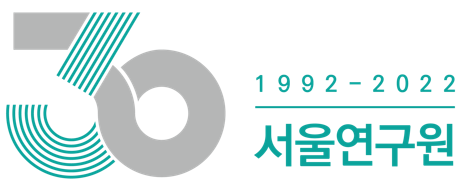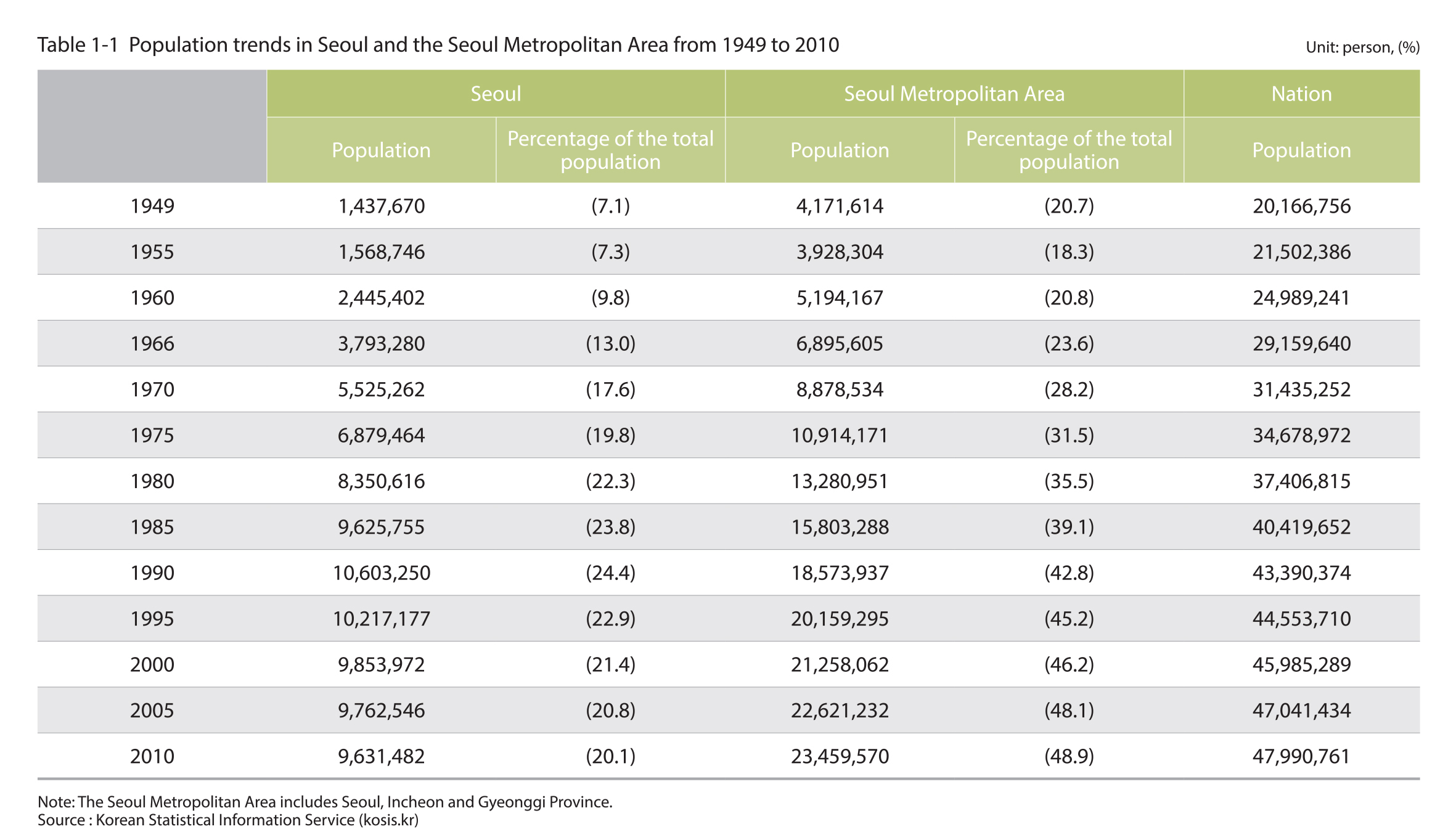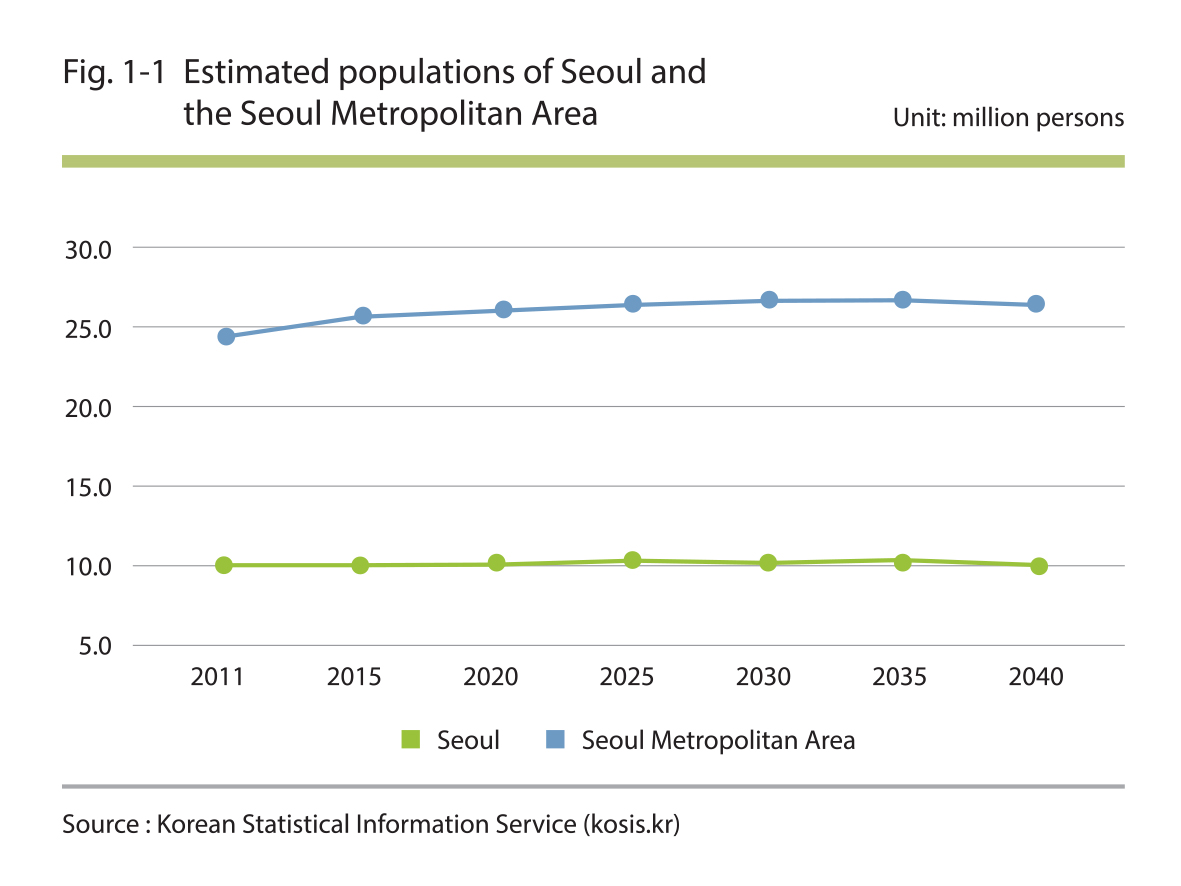-
Population
Population Growth
-
1. Population Change and Growth Rate
1.1. Population Growth and Population Growth Rate
Steady population decline in Seoul and steady population growth in Seoul Metropolitan Area
According to the 2010 Population and Housing Census, the population of Seoul was estimated at 9.63 million, which was a 6.7-fo1d increase from the 1.44 million in 1949. Compared to the 5.4-fo1d increase in the population of the Seoul Metropolitan Area during the same period, the population of Seou1 expanded more rapidly. However, Seoul observed gradual decline in population after 1990 when it reached its peak of 10.6 million, while both the Seoul Metropolitan Area and the nation as a whole observed the opposite. In 2010, the total population of the Seoul Metropolitan Area and Seoul together reached 23 million, which accounted for the 48.9% of the total population of Korea.
Source : Korean Statistical lnformation Service (kosis.kr)
2. Population Projections: 2010~2040
2.1. Estimated Populations of Seoul and the Seoul Metropolitan Area
The estimated population of Seoul will drop after reaching its peak of 10.22 million in 2026
According to the population estimates by Statistics Korea, the population of Seoul is projected to increase slightly from 2013 until it reaches its peak in 2026 and decline afterwards. The population of the Seoul Metropolitan Area and Korea as a whole is expected to reach its peak of 26.7 million in 2031 and 52.16 million in 2030, respectively.
Low probability of population increase in Seoul due to aging and suppressed influx of population
One of the reasons for the decreased population of Seoul around 1990 was the drop in the number of migrants to Seoul due to the land and real estate prices. Considering that the land and real estate prices of Seoul have discouraged and will continue to discourage, a massive migration to Seoul, both low fertility and low mortality among senior citizens are expected to accelerate the aging of population in Seoul, while slowing down population growth.
Source : Korean Statistical lnformation Service (kosis.kr)



